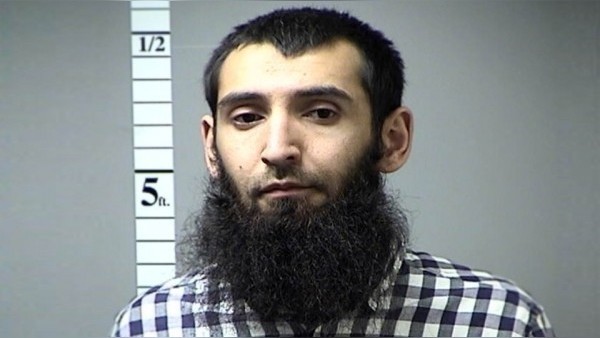Sayfullo Saipov, a native of Uzbekistan, has been sentenced to life in prison for a terrorist attack carried out on October 21, 2017, in the name of the Islamic State of Iraq and al-Sham (“ISIS”), in which Saipov used a truck to murder eight victims and injure many more on a bike path in lower Manhattan.
The United States Attorney for the Southern District of New York, Mr. Damian Williams, announced on March 13 that a Manhattan Jury was unable to reach a unanimous decision as to whether to authorize the death penalty for Sayfullo Saipov.
On January 26, 2023, the same jury reportedly convicted Saipov, 34, of Uzbekistan, of all 28 counts in the Indictment, which charged Saipov with murder for the purpose of gaining entrance to a racketeering enterprise (ISIS); assault with a dangerous weapon and attempted murder for the purpose of gaining entrance to a racketeering enterprise (ISIS); providing material support to a designated foreign terrorist organization (ISIS) resulting in death; and damage and destruction to a motor vehicle resulting in death.
On Halloween afternoon in 2017, Sayfullo Saipov reportedly used a 6,000-pound truck to strike more than 20 innocent people on the Hudson River Bike Path in lower Manhattan. Saipov killed eight of his victims and critically injured many others, including a 14-year-old child. Saipov\s surviving victims suffered amputations, serious brain injuries, life-altering physical injuries, and significant psychological trauma. Saipov reportedly committed his attack after years of devotion to the brutal terrorist organization ISIS and after months of careful planning. In the weeks before his attack, for example, Saipov rented a truck to practice maneuvering it so that he could hit as many people as possible. Saipov reportedly brought a note to the attack with the ISIS flag and rallying cry written on it.
After his attack, while in custody at a hospital, Saipov told the FBI that he committed the attack in response to calls from the leader of ISIS and that he was proud of what he had done. Saipov smiled when describing his attack and sought to hang the ISIS flag in his hospital room. After the attack, ISIS praised Saipov as an Islamic State soldier and called his attack one of the most prominent attacks in the United States.
In the years since his attack, Saipov reportedly continued to demonstrate his devotion to ISIS, including though statements in court, recorded telephone calls, and writings seized from his prison cell. In prison, Saipov also made statements confirming his continued belief that enemies of ISIS should be eliminated and threatening to cut the heads off of corrections officers.
At the liability and sentencing phases of trial, many of Sipov’s victims and their family members bravely described the terror he caused and the pain and suffering they continue to endure.




